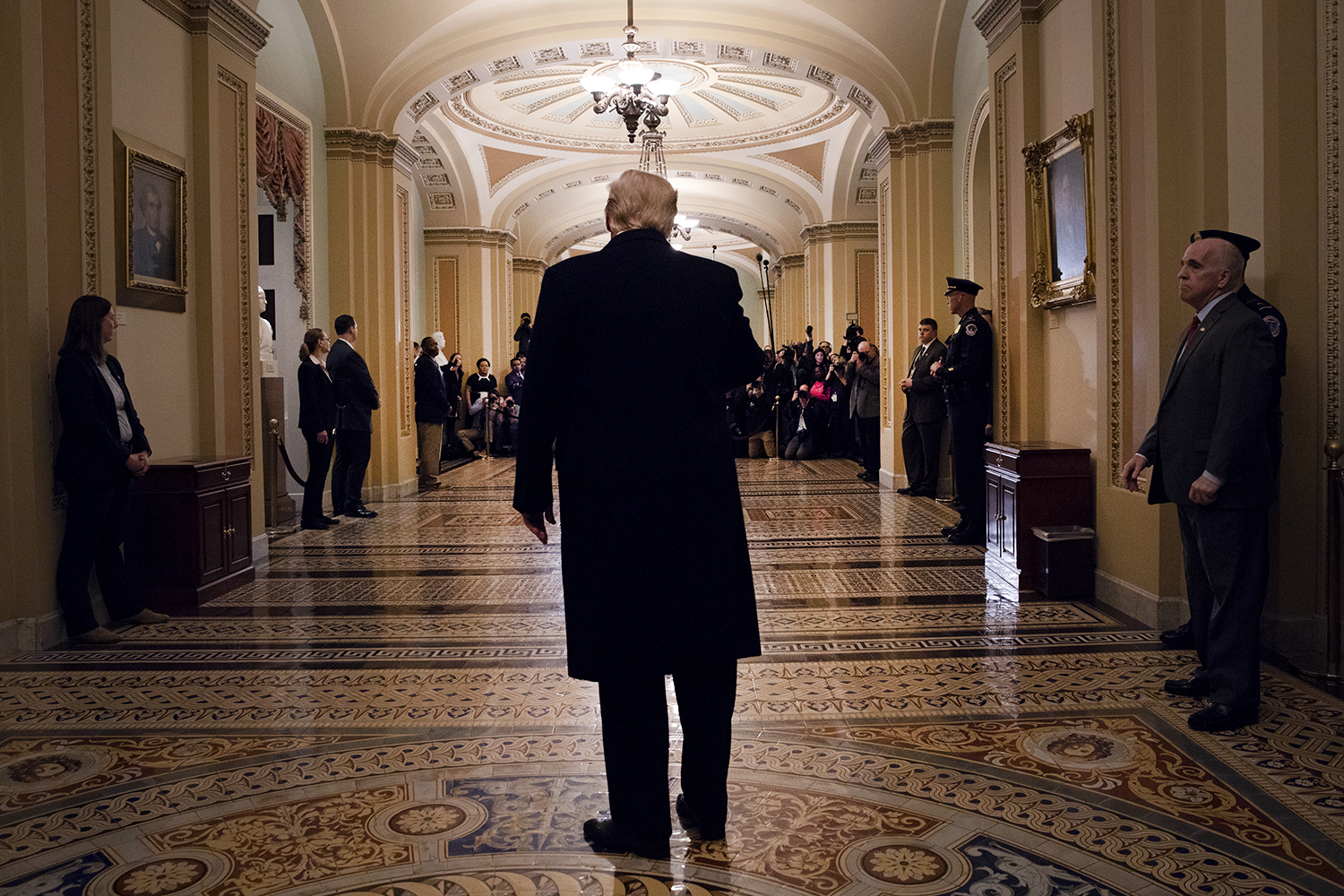
Why Trump Has Met the Standard for Obstruction of Congress
The power of impeachment exists to check a president who refuses to recognize the constitutional separation of powers.

Obstruction of Congress is one of two articles of impeachment the House is voting on today. Here’s why it matters — and why President Trump’s conduct has met that standard.
The United States has three separate, co-equal branches of government. Co-equal is the key point here. To prevent our country from becoming a monarchy or a dictatorship, the legislative branch must have authority to oversee the executive branch.
This doesn’t mean Congress is supreme and can do whatever it wants. There are legitimate cases in which the executive branch has reasonable arguments for refusing to provide information to Congress. This is where questions of executive privilege and national security often come up. In every administration there are oversight requests that executive branch officials view as illegitimate or politically motivated.
But if the executive branch could pick and choose which investigations it is willing to cooperate with, it would effectively eviscerate Congress’s ability to conduct meaningful oversight of the executive branch. When Congress is exercising its legitimate oversight authority — and particularly when that authority is based on the text of the Constitution itself, as it is in an impeachment inquiry — the executive branch generally must comply.
The Trump White House has not done this. To the contrary, it has directed agencies to engage in a strategy of total obstruction, blocking witnesses from testifying and ordering executive branch agencies like the State Department to withhold documents. Importantly, these agencies are not raising traditional privilege concerns. Instead they’ve simply refused to engage in good faith negotiations.
For at least some of the documents, the agencies have effectively acknowledged that they have no legitimate legal basis to withhold the records from Congress. How do we know this? Some of those same documents that the administration refused to provide to Congress were released to American Oversight in response to one of our Freedom of Information Act lawsuits. If an email like this one can be released to us through FOIA, there can be no legal basis for the administration to refuse to give it to Congress. The House Intelligence Committee cited this in their report.
That’s obstruction of Congress. If a president and their administration are allowed to ignore Congress’s authority to oversee the executive branch, that fundamentally undermines the Constitution and our system of checks and balances.
The power of impeachment exists, in part, to prevent situations like this — or to be a final, fall-back measure to check a president who refuses to recognize the constitutional separation of powers. That’s (just one part of) what is happening now.
(And as for those State Department emails we obtained through FOIA? That was just the first production from the first lawsuit. More records are coming soon, including a production of documents from the Defense Department this Friday.)